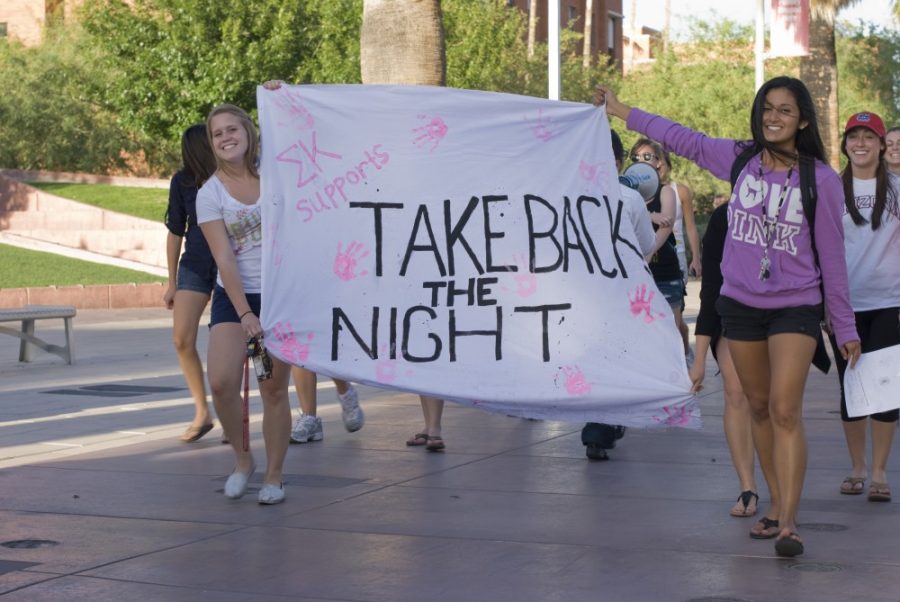For the first time in eight years, the UA will combine forces with the Tucson community on Tuesday evening to take a stand against sexual violence at the annual “Take Back the Night” event.
“We’re uniting our voices against sexual violence,” said Stephanie Arendt, senior prevention educator at the Southern Arizona Center Against Sexual Assault. “It sends a message that sexual assault is never OK and it is never the fault of the survivor.”
The event will feature two solidarity marches, a resource fair, performances and presentations by clubs and local organizations, a “survivor speak-out” and a keynote address by Frank Galarte, a UA professor of Gender and Women’s Studies.
Before converging at the plaza in Main Gate Square, both Tucson and the UA will host marches, one starting at Time Market and the other starting at the Martin Luther King Jr. Student Center. Both marches will start at 5:30 p.m. The demonstrations will “visually come together,” emphasizing the communities’ mutual commitment to combating sexual violence and creating a peaceful, supportive atmosphere, according to Erin Strange, violence prevention specialist for the Oasis Program.
Since its inception in 1975, Take Back the Night has focused on raising awareness about sexual violence worldwide.
It is estimated that 1 in 4 women will be sexually assaulted during her lifetime, while 1 in 6 men will have unwanted or abusive sexual experiences before they reach adulthood, according to the Centers for Disease Control and Prevention. Strange said sexual violence represents a “far-reaching public health crisis.”
Confronting this crisis “means expanding who we normally think of as being a survivor of sexual violence,” Galarte said. Although Take Back the Night originally focused on combating sexual violence toward women, many events have begun to incorporate all genders and sexualities.
“The statistics speak for themselves,” said UA Pride Alliance intern Greg Daniels, a public health junior. “In the (LGBTQ) community as a whole, we have higher numbers of relationship violence, just violence in general.”
In a “raw” and “moving” retelling of personal experiences at Take Back the Night, the alliance hopes to illustrate how sexual violence affects the LGBTQ community, Daniels said. More than half of gay men and lesbians report at least one incident of sexual coercion by their same-sex partners, according to the National Crime Victimization Survey, and some report that abusive partners threaten to “out” them in addition to standard forms of oppression.
“I think it’s important to actually put a face to the violence, because I think some people just think that it’s not as big of a problem, and it’s not really in the news a lot either,” Daniels said. “It’s something that’s very real for our community.”









